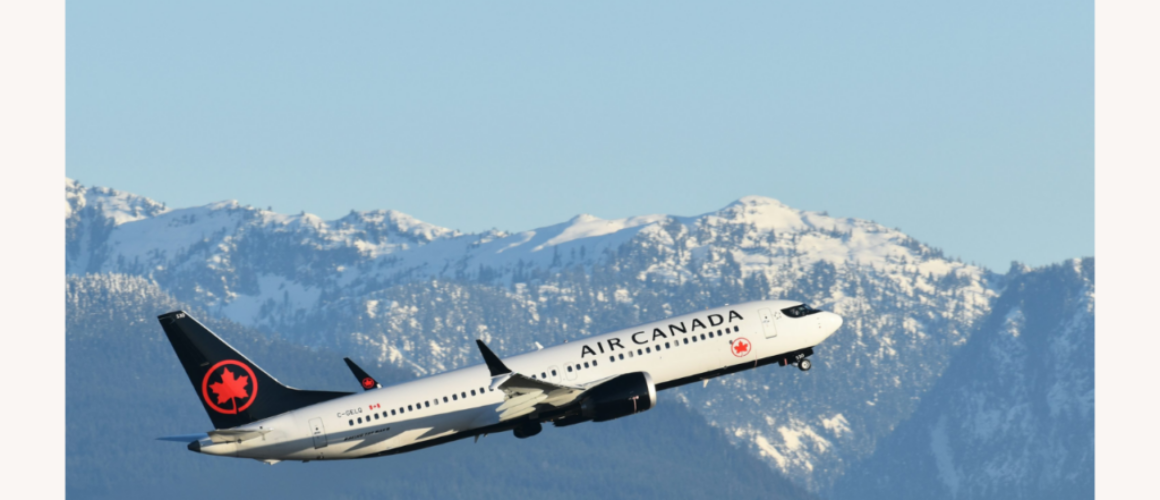Air Canada’s Bold Bet: Triple Points and the Psychological War on U.S. Travel

Toronto, ON – In an ambitious effort to reshape North America’s aviation map, Air Canada has launched a promotional campaign offering triple Aeroplan points to UK travelers flying to North America. But this campaign is more than a seasonal incentive—it’s a tactical maneuver that speaks volumes about Canada’s role as a geopolitical and psychological safe haven in a tense global landscape.
With U.S. travel facing rising skepticism among Europeans due to the Trump administration’s renewed border policies, racial profiling incidents, and unpredictable visa reviews, Canada is stepping forward as a friendlier alternative. The triple points promotion is just the first move in what many in the travel industry are calling a “soft power surge” by Air Canada—and, by extension, the country itself.
Redrawing the Transatlantic Map
Over the past two decades, Canada has been viewed as an alternative—not a primary—entry point into North America. But that calculus is changing. Air Canada is seeing record inquiries from UK travelers who typically opt for New York, Miami, or Chicago, but are now considering Toronto, Montreal, and Vancouver as their primary points of entry, even for business.
Airline insiders suggest that Air Canada’s strategic redirection of aircraft from saturated U.S. routes to under-leveraged European corridors (such as Manchester–Vancouver and Edinburgh–Toronto) reflects a larger pivot: making Canada the new “first stop” for international travelers headed to the continent.
Behind the scenes, executives are reportedly coordinating with Canadian tourism boards and foreign affairs envoys to jointly market Canada as “North America’s calm port”—a place where global travelers can enjoy Western standards without Western hostility.
The Points Aren’t the Point
While the triple Aeroplan points are enticing to loyalists, they’re not the true hook. Travel behavior analysts point to psychological security as the primary motivator. Canada offers:
-
Easier immigration and border processing
-
Less politicized air travel
-
Consistently high international rankings in safety and healthcare access
-
A culturally welcoming tone—especially toward people of color, LGBTQ+ travelers, and Muslim families
In post-Brexit Europe and amid America’s polarizing politics, Canada is emerging as a kind of “global neutral zone” where anxieties about surveillance, gun violence, or systemic bias are simply… less.
Business Class with a National Mission
Interestingly, this move aligns with Prime Minister Mark Carney’s broader push to enhance Canada’s global economic identity. While the travel promotion comes from a private carrier, the underlying strategy supports Ottawa’s ambition to reframe Canada’s global image: from a secondary tourist stop to a primary geopolitical destination.
There are also whispers that Ottawa may soon introduce streamlined visa arrangements for UK business travelers—especially in sectors like AI, green energy, and fintech—further encouraging transatlantic relocation through Canadian soil rather than American.
Risks and Rewards
Not everyone is bullish. Critics warn that an overreliance on “soft migration” of travelers through perks may not hold up if U.S. airlines undercut prices or if political tides turn. But supporters argue that this isn’t a pricing war—it’s a branding war.
As John Lavigne, a senior aviation strategist at the Global Travel Council, notes:
“Air Canada isn’t just selling seats. They’re selling the idea that Canada is the better version of North America. And right now, that idea has global appeal.”
The Takeaway
Air Canada’s triple points campaign is more than just frequent flyer marketing—it’s a psychological play for the hearts and minds of wary travelers. In a world that feels increasingly fractured and hostile, Canada is betting that calm, clarity, and credibility will win out.
And if it works, expect to see more travelers bypass JFK and LAX… in favor of Pearson and YVR.